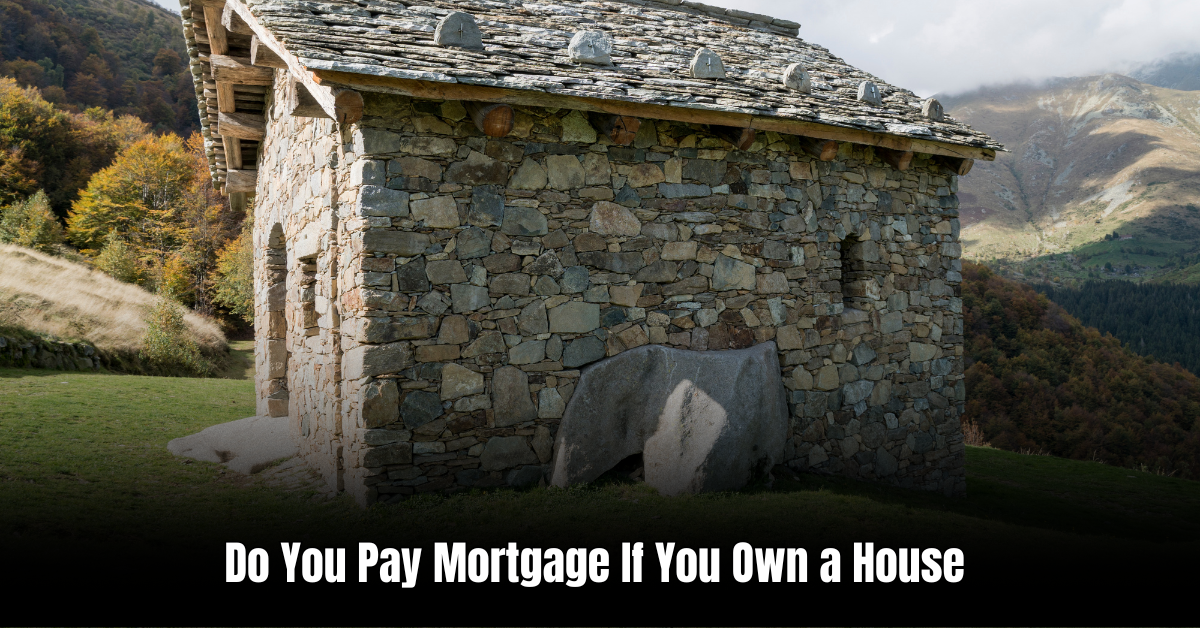Buying a house is a major financial decision that many people strive to achieve. Once you become a homeowner, you may wonder if you still need to pay mortgage payments. The answer depends on different factors, and in this article, we will explore the concept of mortgage and what it means to own a house outright.
Understanding Mortgage
Before we dive into whether you need to pay a mortgage if you own a house, let’s first clarify what a mortgage is. A mortgage is a loan provided by a bank or a financial institution to help you purchase a property. It allows you to borrow a large sum of money and repay it over a specified period, typically with interest.
What Happens When You Pay Off Your Mortgage?
When you pay off your mortgage entirely, congratulations! This means you have successfully fulfilled your loan obligations, and you officially own your house. You will receive a mortgage release or a satisfaction of mortgage document from the lender, which serves as proof that the loan has been fully paid. However, even though you own your house outright, there are still some expenses to consider.
Property Taxes and Insurance
One of the ongoing expenses that homeowners must bear is property taxes. Property taxes are assessed by local government authorities and are based on the value of your property. These taxes help fund local services, including schools, roads, and public facilities. Additionally, if you live in an area that is prone to natural disasters, such as hurricanes or earthquakes, you will also need to pay homeowner’s insurance to protect your investment.
Homeowners Association Fees
If your house is part of a homeowners association (HOA), you will need to pay HOA fees. These fees cover the maintenance and management of shared spaces, such as swimming pools, clubhouses, and landscaping. HOA fees can vary in amount and frequency, depending on the rules and regulations of your specific community.
Home Maintenance
As a homeowner, you are responsible for the upkeep and maintenance of your property. This includes regular tasks such as lawn care, painting, plumbing repairs, and general home improvements. While these expenses are not directly related to your mortgage, they are necessary to ensure that your house remains in good condition and retains its value over time.
Using Your Home Equity
When you have paid off your mortgage, you have built equity in your home. Equity is the difference between the value of your property and any remaining debt on it. One option to access this equity is through a home equity loan or a home equity line of credit (HELOC). These financial products enable you to borrow against your home’s equity for various purposes, including home renovations, education, or debt consolidation.
The Bottom Line
Owning a house outright after paying off your mortgage is a great accomplishment. However, it’s essential to recognize that even though you no longer have mortgage payments, there are still ongoing expenses associated with homeownership. Property taxes, insurance, HOA fees, and home maintenance costs are among the factors to consider.
It is always wise to plan your budget accordingly and set aside funds to cover these expenses. By doing so, you can enjoy the benefits of homeownership, knowing that you have taken care of the financial responsibilities that come with owning a house.
In Conclusion
So, do you pay a mortgage if you own a house? The answer is no, once you have paid off your mortgage, you no longer have to make monthly mortgage payments. However, it’s essential to remember that homeownership comes with ongoing expenses such as property taxes, insurance, HOA fees, and home maintenance costs. Properly budgeting and planning for these expenses will help ensure that you can enjoy your home without any financial burden.
Frequently Asked Questions: Do You Pay Mortgage If You Own A House? Expert Guide
Do You Have to Pay a Mortgage If You Own a House?
No, if you own a house outright without a mortgage, you are not obligated to make monthly mortgage payments.
Can You Have A Mortgage On A House You Own?
Yes, even if you own a house, you can still opt for a mortgage. Some owners refinance to access cash or lower interest rates.
What Happens If You Stop Paying On A Mortgage?
If you stop making mortgage payments, your lender can initiate foreclosure proceedings and eventually sell your property to recover the debt.
Will The Bank Take Your House If You Miss Payments?
Missing mortgage payments could lead the bank to foreclosure proceedings, potentially resulting in the loss of your house.
Ismail Hossain is the founder of Law Advised. He is an Divorce, Separation, marriage lawyer. Follow him.





Leave a Reply